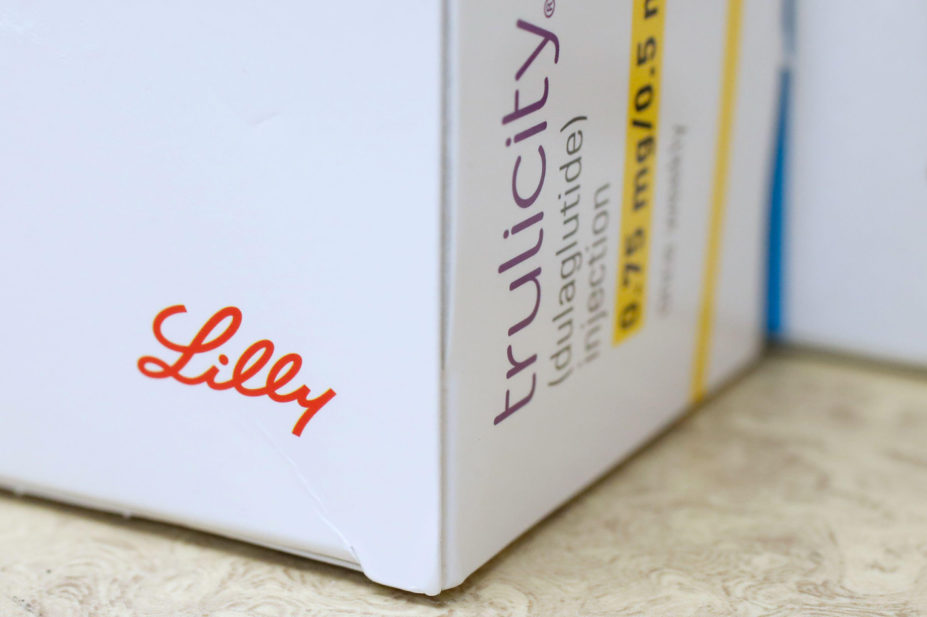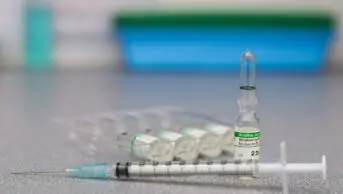
Reuters / Alamy Stock Photo
The Department of Health and Social Care (DHSC) has said it is working on guidance to help prescribers navigate shortages of glucagon-like peptide-1 (GLP-1) receptor agonists.
On 30 September 2022, the Pharmaceutical Services Negotiating Committee (PSNC) issued medicine supply notifications for the type 2 diabetes mellitus (T2DM) medicines semaglutide (Ozempic; Novo Nordisk) — which was approved in September 2022 by the National Institute for Health and Care Excellence for patients with obesity — and dulaglutide (Trulicity; Lilly).
The notification for Ozempic said that the 1mg solution for injection was “out of stock until [the] week commencing 17 October 2022” and that supply after that would be available for existing patients until January 2023.
It added that Ozempic 0.5mg solution for injection remained available but could only support “a partial uplift in demand”; and dulaglutide was “unable to support any uplift in demand”.
In the notification for Trulicity, the PSNC supply alert said that supplies of 0.75mg, 1.5mg, 3mg and 4.5mg solution for injection devices were “limited until January 2023” and that supply would also only be available for existing patients.
For both, the PSNC highlighted that alternative GLP-1 receptor agonists remained available.
A spokesperson for the DHSC told The Pharmaceutical Journal that it was working on guidance, but was not able to confirm when it would be released.
Hannah Beba, consultant diabetes pharmacist for NHS Leeds Clinical Commissioning Group, said she was “very concerned” that people were having to be switched off, or were not able to start, the “gold standard GLP-1 therapies” because of the shortages.
“We know that demand for these medications has been increasing and the focus of the latest [American Diabetes Association/European Association for the Study of Diabetes] consensus statement [released on 23 September 2022] was very much on consideration of weight management in the holistic treatment of people living with T2DM,” she said.
Beba added that Lilly, which manufactures Trulicity, had said that the shortages should only affect new people wanting to start the medication, but the Ozempic shortage is more complicated.
“Our option to drop down to a lower dose [was] removed when shortages in this supply chain were discovered. People on Ozempic, we would advise are switched to Rybelsus [semaglutide; Novo Nordisk] or Victoza [liraglutide; Novo Nordisk] and we hope that the supply chains are secure enough to cope with the increased demand. If these two products go out of stock then we will be back to using exenatide.”
Philip Newland-Jones, consultant pharmacist in diabetes and endocrinology at University Hospital Southampton, said he understood the shortages of dulaglutide to be the result of a “plastics issue” and that that switching from dulaglutide to semaglutide was one of the reasons wholesalers had “almost run out” of all strengths.
“Most areas, most wholesalers, can’t get hold of 0.25mg, 0.5mg or 1mg semaglutide and the date they’ve put on the medication shortage alert is, again, earliest January 2023.”
Newland-Jones added that switching over to other GLP-1 receptor agonists injectables was “not really appropriate”.
“They’re not quite as potent for weight loss or for HbA1c lowering… the other option is obviously the oral semaglutide, which I think is what most people will be going for, and it’s about as potent as 0.5mg of semaglutide injectable at the top dose of the oral version, for about the same sort of price.”
He said that most people he had spoken to in practice-based pharmacy had been doing searches to try and identify affected patients in order to bring them in and switch them across to other medicines, although this could be an opportunity.
“What I’ve been saying to most of our pharmacists regionally is that rather than just automatically bring people in and just convert them across to something else, take the opportunity to just re-review everything and see if they’re on the right combination of medicines the first place.”
Robin Conibere, a practice pharmacist at Beacon Medical Group, said it was “early days” but that it would be “a lot of work” to counsel patients and transfer them to other options.
“There is an oral semaglutide, which takes a while to build up to an effective dose due to gastrointestinal side effect profile, and other GLP-1 injections,” he said. “I believe the DHSC/NHS are likely to produce some guidance in the next few days advising no new initiations and possibly to extend time between doses.
“[It’s] just very frustrating that central NHS are not ahead of this as other parts of the world seem to have been putting measures in place to try and mitigate supply issues for a while.”
According to data analysed by researchers at OpenPrescribing, who published their findings in September 2022, the extra cost of drug concessions for medicines that are difficult to source has reached the highest level for more than two years.
- This article was amended on 9 October 2022 with the correct spelling of Robin Conibere’s surname.


